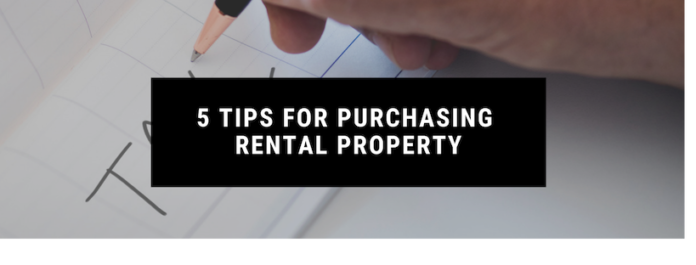Right now, the rental market is at a 50 year high, with people of all incomes renting rather than buying.
In some cities, like New York or San Francisco, it doesn’t always make financial sense to buy when you could rent and have flexibility for less. If you’re considering purchasing a rental property, you need to plan ahead before you sign on the dotted line.
Here are five things to consider before purchasing rental property.
1. Check Out the Market
Before you buy any rental property, you need to do your research. Failing to do research and just pouncing on a property because the price sounds good is the best way to flush your money down the drain. You need to start looking at who is renting, how much the spaces are going for, and what you could get for your money.
Start by going onto craigslist or other places where rentals are listed. This isn’t going to give you a 100% accurate picture but you’ll get a sense of what’s out there. You’ll see some patterns and get the chance to compare your rental to the other units on the market.
When you take the time to check out what kind of prices you could get, you’ll see whether it’s worth it or not. If you can’t cover the equity with a month’s rent, it’s not worth investing in a rental. If there are very few properties around, there might not be a strong rental market in the region you’re looking.
By checking online, you also get to see the other options out there. Rather than jumping on that one unit that attracted you, take a few days to compare it to other units. You’ll be able to make sure that it’s the pick of the litter.
2. Inspect the Property
While some investors are comfortable taking a risk without ever visiting a property, it’s important to see a property in person. Even if you have to send an assistant or representative on your behalf, it’s vital to check out the details. You never know how a place really looks and feels until you run your hands along the wall or step onto the floors.
Hire an inspector to do a legal once over on the place. You need to know whether or not it’ll fall apart in a year or two. You need to test the plumbing, electricity, and other details to ensure you’re not investing in a place that’s bound to crumble.
You also need to look into the legal history of the place. If there are liens on a property that you buy, you could be up the creek dealing with financial institutions or individual lenders who want their money back. It’s a real headache to try to manage someone else’s debt when you’re trying to invest in a property.
Look at this property from every possible angle with as much of a critical eye as possible before you open your wallet up.
3. Look at Other Buyers
If you’re buying a unit in a large building or complex, look into who else is buying the properties. Ideally, you’re looking for other investors who you share things in common with to be investing. If you find that it’s all foreign money coming into a complex, it might be more expensive than the market should be.
You also want to know who your potential neighbors are going to be when you invest in property. By looking at the other buyers, you get the opportunity to introduce yourself. Most of this stuff is public record, so it’s not too wild to reach out and see what other peoples’ experience of buying has been like.
You can also see what the units have gone for in the past to know whether or not you’re getting a good deal. Investing in a new rental property is a great way to make money, so long as you’re not overpaying up front. Ideally, you want to buy when the market is down so you can get the biggest return.
4. Talk Them Down
If you look at the printed sticker price and then agree to that price, you’re just the sucker they’ve been waiting for. Everything in this life is negotiable, and buying a rental property is no exception. Before you agree to any price, you should politely haggle the price down to as low as you possibly can.
If you’re working with a broker, they’ll give you some options of prices you might be able to talk the price down to. They’ll have a limit, telling you as low as you can probably go. However, keep in mind that the price that you talk them down to is going to impact your broker’s take on the deal.
If your broker tells you a bottom number, go just a little bit lower to ensure you get the seller down as much as possible.
If you ran an inspection, quote some of the problems listed in your inspection, telling them you’ll have to get those repairs made.
5. Investment or a Potential Second Home?
You’re going to take a different approach to this whole deal if you’re thinking of it as an investment or planning to move there someday. Even if it’s just a summer place or a vacation home, you need to think of the rental property differently.
This needs to be a location where you’ll be happy when you’re staying there. Make sure to do your research about what’s going on in the area before you invest if this is a potential second home for you.
Purchasing Rental Property Is Worth the Work
If you’re considering purchasing rental property, it’s not something you should go into lightly. If this is your first foray into property investment, it’s a worthwhile concept that you need to think about carefully. You’ll be rewarded in the end.














